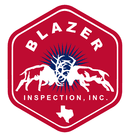Providing You With Safe, Quality Inspection and Testing Services
PROJECT AND TURNAROUND SERVICES
API 510/570/580/653/STI Inspectors
Process Safety Management & Mechanical Integrity Services
AWS-CWI Inspectors
Tubular Testing
AutoCAD / Data Entry Technicians
SPECIALTY SERVICES
Positive Material Identification
Material Hardness Testing
Ground Penetrating Radar (GPR)
Remote Video Inspection
Vendor Surveillance
Rope Access
Remote Monitoring
QA/QC SERVICES
Blazer Inspection, Inc. offers QA/QC services tailored to meet your needs. Our inspectors are AWS, (American Welding Society), CWI certified at a minimum. We have access to the latest codes, associated interpretations, and the industry's most up-to-date welding/inspection processes and methodologies. Blazer can also assist with validating quality processes by establishing product specifications and quality attributes, measuring production, documenting evidence, determining operational performance qualification, and writing/updating quality assurance procedures.
